New study highlights ethical challenges in conducting cannabis research in Canada
Powered by WPeMatico
Powered by WPeMatico

Rahway: Merck, known as MSD outside of the United States and Canada, and Hansoh Pharma, a Chinese biopharmaceutical company, have announced that they have entered into an exclusive global license agreement for HS-10535, an investigational preclinical oral small molecule GLP-1 receptor agonist.
“We continue to leverage science-driven business development to augment and complement our robust pipeline,” said Dr. Dean Y. Li, president, Merck Research Laboratories. “Through this agreement, we aim to build on our experience targeting incretin biology to evaluate HS-10535 and its potential to provide additional cardiometabolic benefits beyond weight reduction.”
Under the agreement, Hansoh Pharma has granted Merck an exclusive global license to develop, manufacture and commercialize HS-10535. Hansoh Pharma will receive an upfront payment of $112 million and is eligible to receive up to $1.9 billion in milestone payments associated with the development, regulatory approval and commercialization of the candidate, as well as royalties on sales. Hansoh Pharma may co-promote or solely commercialize HS-10535 in China subject to certain conditions. Merck will record a pre-tax charge of $112 million, or $0.04 per share, to be included in GAAP and non-GAAP results in the fourth quarter of 2024.
“We are pleased to announce the in-license of our oral GLP-1 by Merck, a company with established leadership in cardiometabolic diseases,” said Ms. Eliza Sun, Executive Director of the Board, Hansoh Pharma. “Hansoh Pharma is becoming an emerging leader in metabolic diseases, and we see Merck’s expertise and capabilities as key to accelerating the development of this promising asset for patients worldwide.”
Hansoh Pharma is a pharmaceutical company in Greater China. It has been ranked among the top 100 global pharmaceutical companies and the top 3 best industrial enterprises in China in terms of pharmaceutical R&D pipeline for several years. Hansoh Pharma was listed on the Stock Exchange of Hong Kong in June 2019 (stock code: 03692.HK).
Read also: Merck application for RSV treatment Clesrovimab for infants accepted by USFDA
Powered by WPeMatico
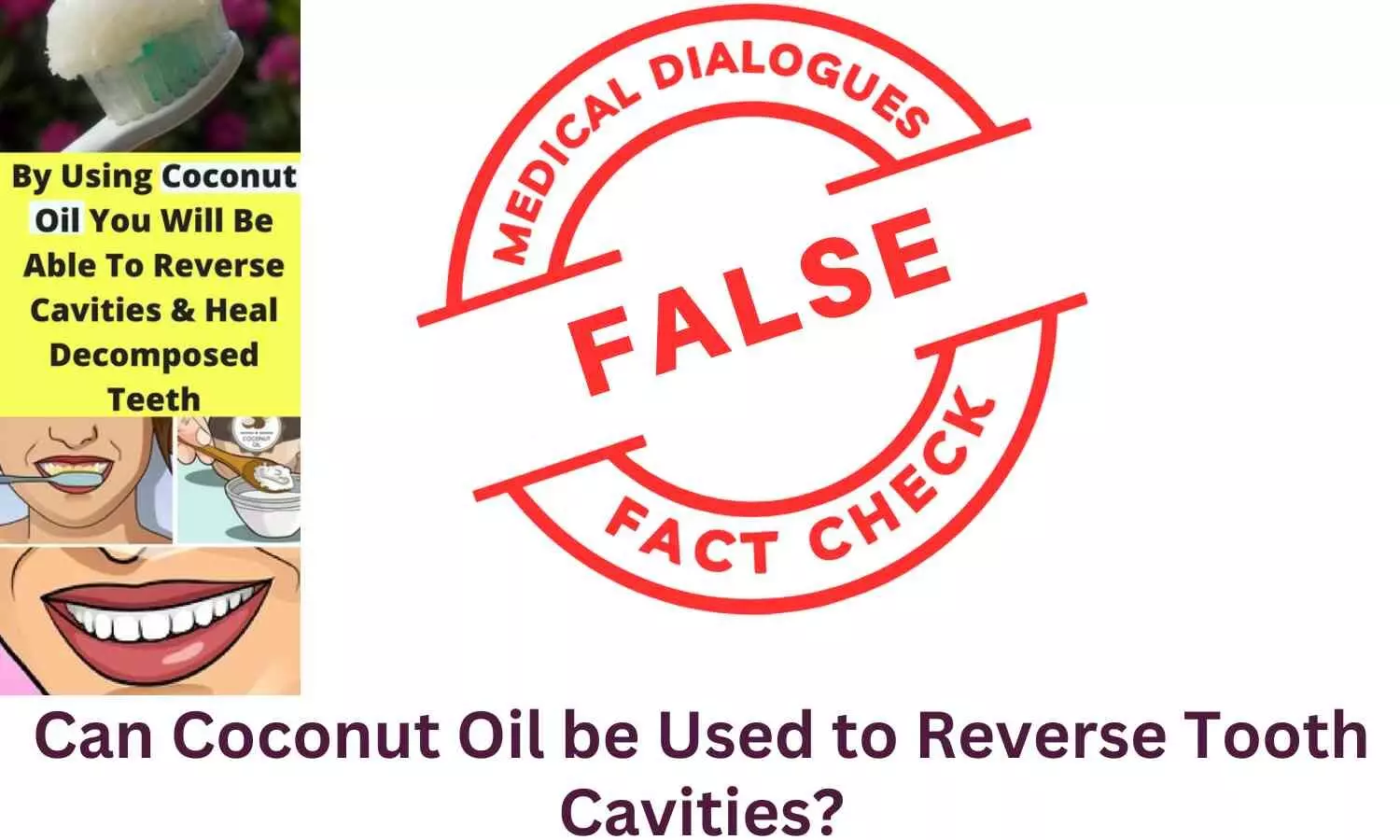
A Pinterest post claims that coconut oil can be used to reverse tooth cavities. The claim is False.
A Pinterest user SpinDash Teeth Whitening posted a claim that, “By using coconut oil you will be able to reverse cavities and heal decomposed teeth.”
The post can be accessed here.
The claim is False. Coconut oil can promote better oral hygiene but cannot reverse cavities or heal decomposed teeth. Preventing tooth decay requires consistent oral care and professional dental treatment for existing issues.
Tooth cavity or decomposed tooth in medical terms known as Dental Caries. Shafers in 1993 defined dental caries as as an irreversible microbial disease of the calcified tissues of the teeth, characterized by demineralization of the inorganic portion and destruction of the organic substance of the tooth, which often leads to cavitation.
This common chronic condition is mainly caused by cariogenic bacteria like Streptococcus mutans, which adhere to the teeth. These bacteria convert sugars into acid, leading to the gradual erosion and weakening of tooth structure.
The development of dental caries relies on four essential factors: bacterial biofilm (plaque), fermentable carbohydrates, dental hard tissues, and an adequate amount of time.
There is no cure for tooth cavities, once they have taken place, they cannot be reverted back.
Coconut oil, derived from the kernel of mature coconuts from the coconut palm, is a popular cooking oil with several potential benefits. It may help reduce waist circumference, boost HDL cholesterol levels, and provide antimicrobial effects due to monolaurin. Virgin coconut oil is rich in polyphenols and contains higher levels of vitamin E, offering possible antioxidant and anti-inflammatory properties.
Coconut oil is neutral for cardiovascular health when consumed with other fats or supplemented with linoleic acid, as it does not inherently increase the risk of heart disease. It contains easily digestible medium-chain fatty acids, which are more metabolically efficient than long-chain fats found in other oils. Natural coconut oil retains essential nutrients, making it a safe and balanced choice for overall health when used as part of a healthy diet.
There is no cure for dental caries. It cannot be reverted back.
Coconut oil offers various health benefits like antimicrobial, antioxidant and anti-inflammatory properties, and it is easily digestible oil, however, there is no scientific evidence or medical consensus from within the dental community that supports the claim that coconut oil can be used to reverse cavities.
There are studies that have shown the effect of coconut oil. One such study was published in the International Journal of Health Sciences, suggesting that oil pulling may have antibacterial activity against Candida albicans and Streptococcus mutans using coconut oil, where S. mutans is one of the essential factors for the development of dental caries. However, this study does not talk about the reversal of dental caries once formed.
A systematic review and meta-analysis published in the Journal of the International Oral Health highlighted coconut oil’s effectiveness as an antimicrobial agent in reducing bacterial colonization and significantly improving oral hygiene through oil pulling. However, the study does not support the claim that coconut oil can reverse dental caries.
Another study published in the Journal of Global Oral Health concluded that oil pulling with coconut oil is effective in reducing plaque and gingivitis. It described coconut oil as a safe, affordable, and effective option with minimal side effects, making it a valuable addition to oral hygiene practices.
Studies have demonstrated the effectiveness of coconut oil as an adjunct in reducing plaque and bacterial colonization that contribute to the formation of dental caries. However, no studies have indicated that coconut oil has the ability to reverse cavities or heal decayed teeth. Furthermore, there is no consensus within the dental community supporting the claim that coconut oil can reverse cavities.
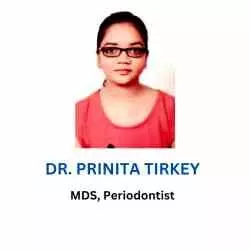
Dr. Prinita Tirkey, MDS Periodontist, Rajmata Smt. Devendra Kumari Singh Deo Govt Medical College and Hospital Ambikapur, Surguja, Chhattisgarh, told Medical Dialogues, “Claiming that coconut oil can reverse cavities is an overstatement. Once dental caries begin, they cannot be reversed, as there is no cure or ingredient, including coconut oil, capable of repairing cavities. Maintaining proper oral hygiene through regular brushing, flossing, and professional dental care is the best way to prevent cavities and protect your teeth.”

To this Dr Deepika Jain, Orthodontist, Samda Superspeciality Hospital, Rajnandgaon, C.G, added, “Cavities occur when tooth decay damages the structure of the tooth, and this damage is irreversible and can only be restored with dental treatment. While coconut oil may support oral hygiene by reducing bacteria, it cannot repair cavities. For optimal dental health, focus on consistent brushing, flossing, and regular dental check-ups to prevent tooth decay in the first place.”
Coconut oil offers benefits like antimicrobial and anti-inflammatory properties, making it a helpful addition to oral hygiene routines. However, it cannot reverse cavities or repair decayed teeth. Cavities are permanent and require professional dental treatment. Maintaining proper oral hygiene, including regular brushing, flossing, and dental check-ups, is the most effective way to prevent cavities and ensure good oral health.
Hence the claim coconut oil can be used to reverse tooth cavities is False.
Powered by WPeMatico

Kolkata: The parents of the doctor who was raped and murdered at RG Kar Medical College and Hospital have filed a petition in the Calcutta High Court demanding a fresh investigation into their daughter’s tragic death.
Expressing a lack of confidence in the ongoing probe into the incident that led to huge protests, they prayed for a direction for a fresh investigation into the rape and murder of their daughter.
According to the PTI report, Justice Tirthankar Ghosh asked their lawyer to add the CBI, which is probing the case, as a party in the petition and mention the matter again before the court on Monday.
The on-duty postgraduate trainee doctor’s body was found in the seminar room of the RG Kar Medical College and Hospital on August 9.
Also Read:RG Kar Case: Victim’s parents express disappointment over bail to key suspects, say ‘System failing us’
The Sealdah court on December 13 granted bail to RG Kar Medical College and Hospital ex-principal Sandip Ghosh and Tala police station’s officer-in-charge Abhijit Mondal in the case. They were granted bail as the CBI failed to file charge sheets against them within the 90-day statutory period, according to their lawyers.
While Ghosh was accused of tampering with evidence in the case, the police officer was accused of delaying the filing of an FIR after the body was found.
CBI has filed a charge sheet against the prime accused, Sanjay Roy.
In its charge sheet, the CBI said Roy, who was working as a civic volunteer with the local police, allegedly committed the crime when the victim had gone to sleep in the hospital’s seminar room during a break.
Medical Dialogues had earlier reported that the West Bengal Joint Platform of Doctors (WBJDF) was denied permission to hold a demonstration from December 17 at a key crossing in central Kolkata, aimed at urging the CBI to submit a supplementary charge sheet in the RG Kar case. In response, the doctors’ body has decided to approach the Calcutta High Court.
Also Read:Kolkata Rape-Murder Case: Doctors’ body plan 10-day demonstration
Powered by WPeMatico
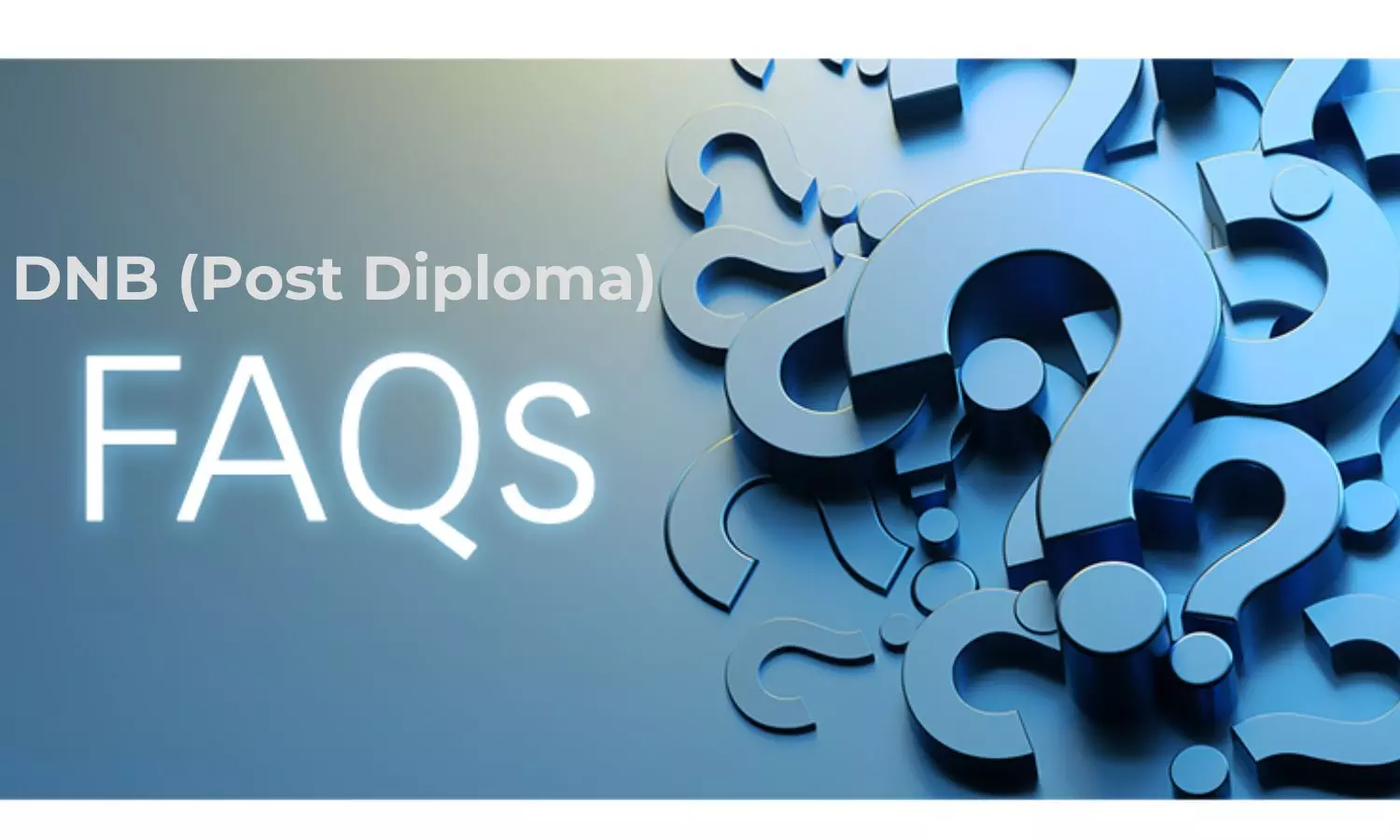
New Delhi- The National Board of Examination (NBE) recently invited applications for Participation in the Centralized Merit Based Counselling for Admission to Post Diploma DNB Courses 2024 Admission Session. NBE has also released an information bulletin detailing the FAQs.
The counselling process will be held till December 24th.
FREQUENTLY ASKED QUESTIONS(FAQ):
How can I know the Counseling schedule and Seat Matrix Details?
The schedule and Seat Matrix for DNB PDCET 2024 Centralized Counseling is available on NBEMS’s Counseling Website
Whether the registration fee/ payment gateway charges refundable?
No.
How many options a candidate can select during the registration and choice filling process?
The registered candidates are allowed to select and arrange the choices of seats in the order of their preference. The candidate can select any number of choices of seats available for Counseling. However, candidates are cautioned not to fill the choices in which they are not interested to join, if they do so and allotted with such seat, they will not be eligible for Final Round(Mop-up) Counseling (if conducted).
What problems may be faced in the process of login?
Follow the instructions about use of browser (Mozilla Fire Fox, Internet Explorer – (Latest Version), Google Chrome), use of same spellings, same format of date (Use digits for day, month and year with – in between) as in application form submitted to National Board Examinations (NBEMS), New Delhi. Please clear cache of the browser.
The internet connection should be uninterrupted. If internet connection interruption takes place, the IP address which is being monitored will change and session expired message will be displayed. Please try to login from another computer from which other candidate(s) has logged in successfully, if possible.
Is it necessary to produce the original documents at the time of Joining in the allotted institute?
Candidate have to produce all the prescribed documents ‘IN ORIGINAL’ at the time of Certificate Verification during Joining in the allotted institute and also at the time of FACE ID verification (if conducted). In addition, candidates are required to upload the scanned copies of the original documents during the registration process of Counseling.
Is it necessary to bring Identification proof?
Yes, Candidates are required to produce one of the following Govt. issued Photo ID card in original at the time of Credential and FACE ID Verification (if conducted) at allotted institute during joining/designated centres of NBEMS:
• PAN card
• Passport issued by Govt of India
• Voter ID card
• Driving License
• Aadhaar Card (with photograph)
No other ID proof will be accepted. The scanned copy of the same should be uploaded on the website during the registration process.
What if I am employed and wish to attend the Counseling?
You can attend the Counseling with NOC (issued from your employer) and opt for a seat also, however, if a candidate is employed, he/she has to furnish a ‘Relieving letter’ issued by competent authority/Employer at the time of joining in the allotted institute. In case a candidate requires any extension of date of joining on account of obtaining relieving letter from the employer, please seek prior approval of NBEMS.
What if I am under a service/security bond and wish to attend the Counseling?
You can attend the Counseling and opt for a seat also, however, if a candidate is under bond, he/ she has to furnish a ‘Bond Free Certificate/ NOC’ issued by competent authority/ University at the time of joining in the allotted institute.
Can I participate in Counseling of future sessions based on DNB PDCET-2024 result?
No, the DNB PDCET-2024 result and merit are valid for the current session (2024 admission session) only.
How can I resign from the DNB PDCET seat opted, if at all I wish to?
You need to forward your resignation through the training institute/ hospital to NBEMS.
What if I resign from the seat opted in the Counseling. Will I be eligible for future DNB PDCET?
Candidates already pursuing DNB PDCET course are not eligible for admission to DNB (Post Diploma) Courses till such time they have completed the entire duration of the prescribed course. Candidates already pursuing a Post-Graduation course are not eligible for admission to DNB (Post Diploma) courses for the entire duration prescribed for the course already joined by them earlier. This shall be irrespective of their resignation or discontinuation from the said course due to any reason.
Is registration for the DNB PDCET Course mandatory?
Yes, all candidates who have joined DNB PDCET training are required to get registered with NBEMS for DNB PDCET course. A provisional registration number is issued on completion of self-appraisal by the trainee and its verification by the training institution.
Details regarding self-appraisal shall be notified on NBEMS website on conclusion of Counseling.
The Centralized Online Merit Based counselling for admission to DNB (Post Diploma) 2024 admission session shall be conducted by NBEMS as per the schedule given below:
| S.No. | COUNSELING PROCESS | Schedule | |
| FIRST ROUND | SECOND ROUND | ||
| I | Registration for Counseling | 3 rd to 6th December, 2024 (till 05:00 PM) | No new Registration |
| ii | Filling up option/ choices of available seats | 3 rd to 6th December, 2024 (till 05:00 PM) | 16th to 18th December, 2024 (till 05:00 PM) |
| iii. | Processing of Allotment | 7 th to 8 th December, 2024 | 19th December, 2024 |
| iv | Result of Allotment | 9 th December, 2024 | 20th December, 2024 |
| v | Payment of First Year Course Fee | 9th to 12th December, | 20th to 24th December, 2024 (till 05:00 PM) |
| VI | Physical Joining at the allotted hospita | 2024 (till 05:00 PM) | 20th to 24th December, 2024 (till 05:00 PM) |
Powered by WPeMatico

Coded implant abutments may enhance digital fabrication of fixed implant prostheses and reduce chair time suggests a study published in the Journal of Dentistry.
To present the clinical results obtained using a novel coded healing abutment (CHA). They evaluated 103 patients with fixed implant-supported zirconia restorations (90 single crowns, 26 partial dentures, and 6 full arches) manufactured via computer-aided-design/computer-assisted-manufacturing and starting from the point of intraoral scans of novel CHAs (i-Physio®, LYRA-ETK, Sallanches, France). Patients were followed for one year. We assessed the clinical precision of the final restorations at delivery (quality, fit, and occlusal and interproximal contacts), as well as hard and soft tissues stability and patient satisfaction at the one-year follow-up. All complications were recorded.
Results: The quality of the restorations was high, with satisfactory marginal fits (96.8% of the cases), occlusal contacts (95.1%), and interproximal contacts (94.3%). Excellent hard and soft tissues stability were found at the one-year follow-up assessment, with few complications (0.9% biological, 4.9% mechanical, and 1.6% technical) for an overall restoration success rate of 92.3% at the patient level and 91.9% at the restoration level. Patient satisfaction was high. Within the limits of this study (retrospective design, short follow-up time) this novel CHA, with high prosthetic precision and esthetics, was clinically reliable and promoted hard and soft tissue stability. Further studies on a larger sample of patients and a longer follow-up period are needed to confirm these preliminary clinical outcomes. High prosthetic precision can be achieved when scanning CHAs. CHAs simplify digital impressions, reduce the manipulation of soft tissues, and prepare them for scanning, thereby promoting tissue healing and stability over time. Additionally, CHAs can serve as temporary abutments for immediate, nonfunctional loading.
Reference:
A novel coded healing abutment for a simplified digital workflow: A retrospective clinical study on 103 patients with a one year follow-up, Journal of Dentistry, Volume 152, 2025, 105465, ISSN 0300-5712. https://doi.org/10.1016/j.jdent.2024.105465.
(https://www.sciencedirect.com/science/article/pii/S0300571224006353)
Keywords:
Coded, implant, abutments, may, enhance, digital, fabrication, fixed, implant, prostheses, reduce, chair, time, study, Journal of Dentistry, Coded, healing, abutment, Intraoral, scanner, Emergence profile, Emergence angle, Digital, implantology, Direct, digital, workflow
Powered by WPeMatico
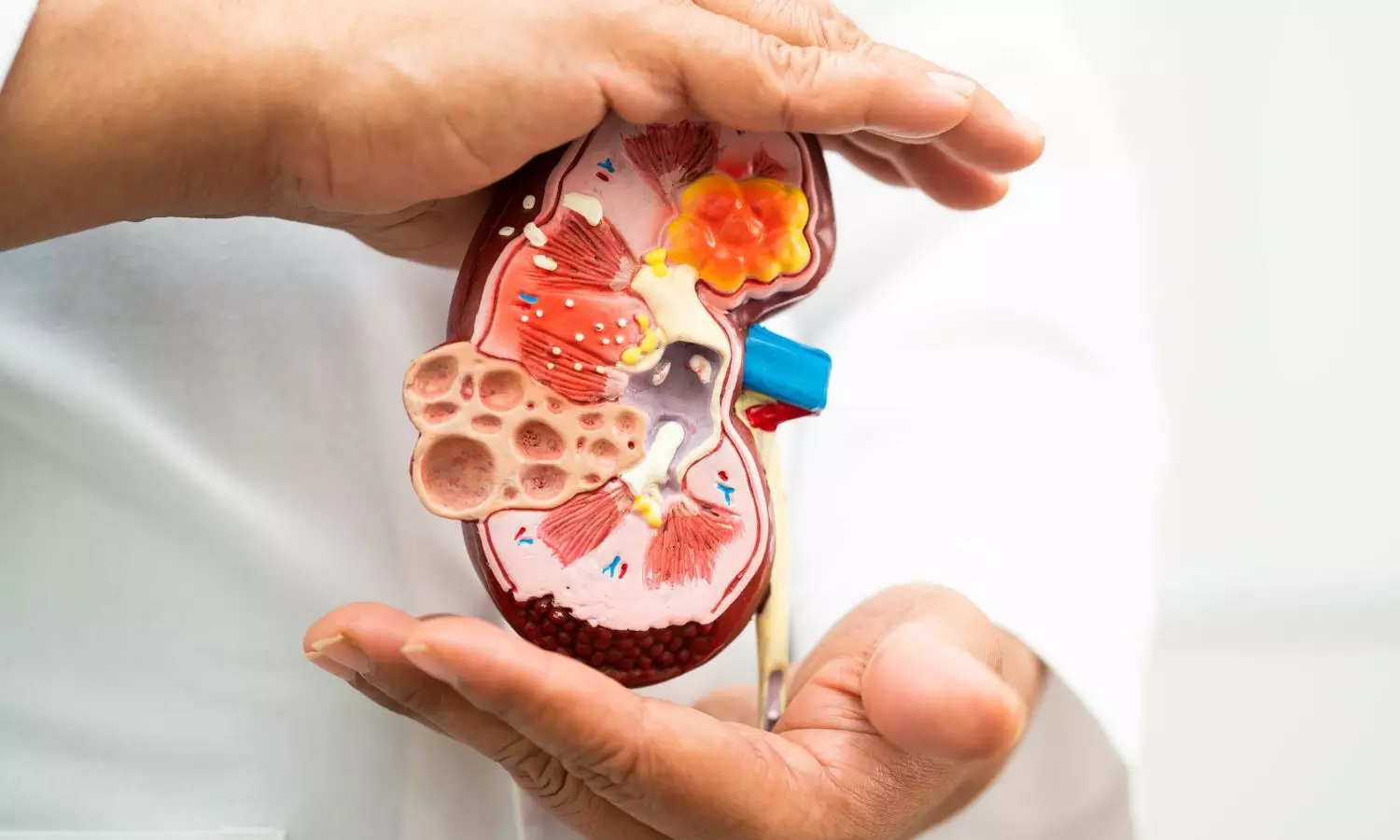
Patients with symptomatic anaemia associated with chronic kidney disease who are on chronic maintenance dialysis can now also receive vadadustat instead of an erythropoiesis-stimulating agent such as darbepoetin. The German Institute for Quality and Efficiency in Health Care (IQWiG) has now examined in an early benefit assessment whether the new drug offers an added benefit for these patients in comparison with the appropriate comparator therapy (ACT). The (German-language) report was published in September 2024, an English translation in November 2024.
No overall advantage or disadvantage of vadadustat can be established based on the available results of the two studies cited by the manufacturer in its dossier; individual positive and negative effects can be seen in side effects. An added benefit of vadadustat in comparison with the ACT is therefore not proven.
Anaemia is often accompanied by symptoms such as fatigue, dizziness, headache and physical weakness. The resulting reduction in physical performance also has an impact on patients’ quality of life. However, informative outcomes on symptoms and outcomes in the health-related quality of life category were not recorded in the studies. It therefore remains unknown what effect the consistently lower haemoglobin levels during treatment with vadadustat have on the patients’ wellbeing.
In smaller studies, the results of which were not included in the benefit assessment, the manufacturer had previously asked patients about their wellbeing, thus demonstrating that patient-reported outcomes can and should be recorded during treatment with vadadustat. Daniela Preukschat, who heads the Chronic Diseases Division in IQWiG’s Drug Assessment Department, says: “The study data used for the benefit assessment say nothing about how patients feel during and after treatment. It would have been perfectly feasible to record patient-relevant outcomes. The opportunity was missed to collect important data for patients and treatment decisions.”
The dossier assessment is part of the early benefit assessment according to the Act on the Reform of the Market for Medicinal Products (AMNOG) supervised by the G-BA. After publication of the dossier assessment, the G-BA conducts a commenting procedure and makes a final decision on the extent of the added benefit.
Reference:
Vadadustat (symptomatic anaemia associated with dialysis-dependent chronic kidney disease); Benefit assessment according to §35a SGB V, IQWiG (2024). DOI: 10.60584/a24-67_en.
Powered by WPeMatico

Belgium: Allergic contact cheilitis and stomatitis (ACD) are conditions that can be triggered by everyday products such as beverages and food, yet they remain underreported and often misdiagnosed. These reactions can present as persistent symptoms such as swelling, erythema, and burning sensations around the lips and oral mucosa. A recent case study published in Contact Dermatitis highlights the role of non-occupational allergens, particularly sulfites and cinnamon, in causing allergic contact cheilitis and stomatitis.
One patient, an 81-year-old woman, sought medical help after experiencing recurrent swelling and erythema on her lower lip, accompanied by a burning sensation in her oral mucosa. These symptoms persisted for six months, disappearing intermittently without any clear cause. Despite consulting multiple specialists and undergoing various tests, including biopsies and serological examinations, no autoimmune condition was diagnosed. However, a patch test revealed a positive reaction to sodium metabisulphite, a preservative commonly found in sparkling wines. The patient’s daily consumption of wine, containing about 170 ppm of sulphite, was identified as the trigger. Upon discontinuing the wine, her symptoms improved, confirming the diagnosis of allergic contact cheilitis due to sulphites in beverages.
This case underscores the significance of considering beverages, particularly alcoholic drinks containing sulphites, as potential allergens. Sulphites, both naturally occurring and as additives in wine, have been increasingly recognized as a cause of allergic reactions. Despite being included in baseline patch testing, sulphites may be misclassified as irritants rather than allergens. It is essential for clinicians to thoroughly investigate potential sources of allergens in non-occupational settings, such as daily food and drink habits.
Another case involved a 50-year-old woman referred for suspected autoimmune disease due to persistent aphthous ulcers on her lower lip and swelling around her eyelids. Initial investigations ruled out conditions like lupus and dermatomyositis. Patch testing, however, revealed positive reactions to several allergens, including cinnamic alcohol, a compound found in cinnamon. A detailed history revealed her daily consumption of apples with cinnamon, which she was advised to stop. Within weeks, her symptoms completely disappeared, confirming the diagnosis of allergic contact stomatitis caused by cinnamon.
Both cases highlight the critical role of patch testing in diagnosing allergic contact cheilitis and stomatitis. These conditions often result from allergens in everyday foods and beverages, such as sulphites and cinnamon. Clinicians should consider ACD in cases of persistent or unexplained oral symptoms and take a comprehensive history to identify potential triggers. Avoidance of the offending agent remains the primary treatment, offering relief and preventing recurrence.
The increasing recognition of food and beverage-related ACD calls for greater awareness among healthcare providers to better diagnose and manage this often underreported condition.
“Comprehensive patient history and patch testing are crucial for pinpointing contact allergens responsible for treatment-resistant oral ulcers,” the researchers concluded.
Reference:
Kerre, S., & Goossens, A. Allergic contact cheilitis/stomatitis due to beverages and food, an underreported diagnosis. Contact Dermatitis. https://doi.org/10.1111/cod.14725
Powered by WPeMatico

Iran: A recent systematic review has highlighted the potential of L-theanine supplementation as an effective approach to improving symptoms in individuals with mental health disorders.
The findings, published in the journal BMC Psychiatry, indicate that L-theanine supplementation was more effective in reducing psychiatric symptoms compared to control interventions in individuals with schizophrenia, anxiety disorders, and attention-deficit hyperactivity disorder (ADHD). This implies its potential as a complementary treatment option alongside traditional therapies.
Amino acids like L-theanine (LT) have demonstrated potential as effective adjuncts to antidepressants, antipsychotics, and other psychopharmacological treatments, offering improvements in the symptomatic management of various mental disorders. However, despite this promising evidence, no comprehensive systematic reviews have been conducted to explore these associations thoroughly.
To address this gap, Reza Moshfeghinia, Substance Abuse Research Center, Shiraz University of Medical Sciences, Shiraz, Iran, and colleagues carried out a systematic review of randomized controlled trials to evaluate the effects of L-Theanine supplementation on mental health outcomes, focusing on its role as an adjunctive therapy for individuals with mental disorders.
For this purpose, the researchers conducted a comprehensive systematic review by searching six electronic databases—PubMed, Scopus, PsycINFO, Web of Science, CINAHL Complete, and Cochrane—from their inception until June 2023. The review focused on identifying randomized controlled trials that explored the effects of L-theanine supplementation on mental health outcomes in patients with mental health disorders. To ensure the quality and reliability of the findings, the Cochrane Risk of Bias Tool for Randomized Trials was utilized to assess the risk of bias in the included studies.
The following were the key findings:
In conclusion, the systematic review represents the first comprehensive examination of L-Theanine’s effects across a range of mental disorders. The authors highlight LT’s promising potential in reducing psychiatric symptoms, particularly in individuals with schizophrenia, anxiety disorders, and ADHD. Despite its strengths, the review acknowledges limitations, including the small number of studies, potential publication bias, and the lack of standardized dosages.
“These findings provide valuable insights into LT’s therapeutic promise while emphasizing the need for further well-designed research to confirm its efficacy, explore underlying mechanisms, and address existing gaps to optimize its use in mental health interventions,” the researchers concluded.
Reference:
Moshfeghinia, R., Sanaei, E., Mostafavi, S. et al. The effects of L-theanine supplementation on the outcomes of patients with mental disorders: a systematic review. BMC Psychiatry 24, 886 (2024). https://doi.org/10.1186/s12888-024-06285-y
Powered by WPeMatico
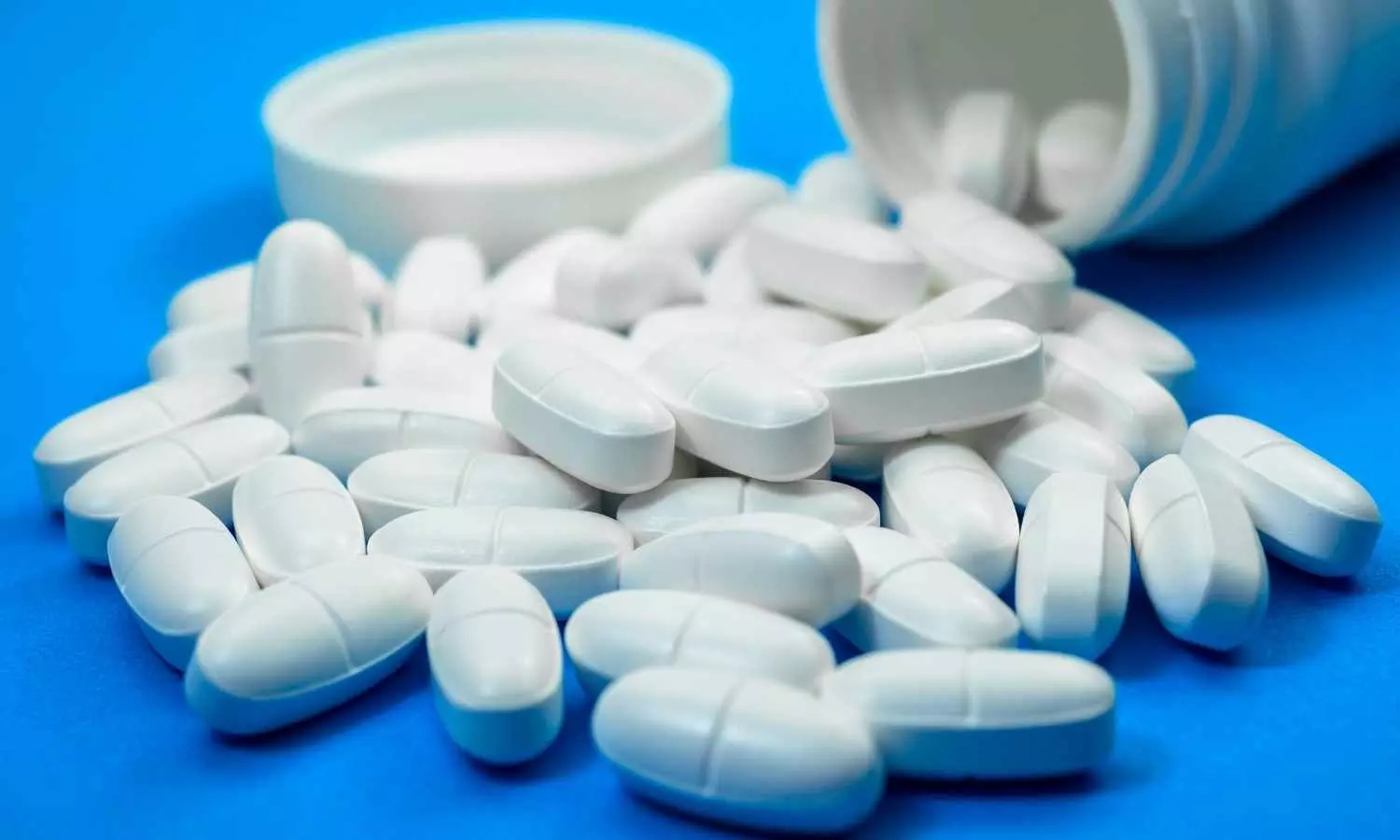
A new study published in the Journal of the National Cancer Institute found that metformin which is frequently used to regulate blood glucose levels in diabetic patients may enhance the benefits of immunotherapy and increase recurrence-free survival in overweight or obese lung cancer patients. Clinical results raised questions about its potential as a treatment for individuals with non-small cell lung cancer (NSCLC). Thus, Randall Smith and his colleagues postulated that individuals with non-small cell lung cancer who are overweight or obese would benefit from taking metformin.
This study used complimentary mouse models and retrospectively examined 2 clinical cohorts. The effect of metformin on clinical outcomes was assessed in one cohort of NSCLC patients who had lobectomies and were overweight (≥25 kg/m2, n = 511) or non-overweight (<25 kg/m2, n = 232). The impact of metformin on progression-free survival following immune checkpoint inhibitors in overweight (n = 284) versus non-overweight (n = 184) non-small cell lung cancer patients was investigated in another cohort. Lung cancer models were used to evaluate the effects of metformin on tumor growth, antitumor immunity, and immune checkpoint inhibitor responsiveness in obese and normal-weight mice.
After a lobectomy, metformin is linked to a higher recurrence-free survival rate in overweight patients. Also, it reversed many pathways of immune suppression exacerbated by obesity and corrected increased tumor development in diet-induced obese mice models in a lymphocyte-specific manner.
Programmed cell death 1 blocking in conjunction with metformin correlate with progression-free survival, and it was more successful in reducing tumor burden in fat mice in overweight individuals receiving immunotherapy. This phase 2 clinical research assessed the ability of the drug to prevent lung cancer in overweight or obese individuals who are at high risk for the illness, based on their preclinical and clinical data.
One of the most commonly available and reasonably priced medications of any sort, metformin has been in use for 30 years and has a lengthy history of safety. Metformin may increase the effectiveness of immunotherapy in this expanding demographic and improve lung cancer-specific clinical outcomes in individuals who are fat or overweight. Overall, this study clarifies the underlying immunological phenomena and finds obesity as a possible predictive biomarker of metformin’s anticancer and immunotherapy-enhancing effects in lung cancer.
Reference:
Smith, R. J., Jr., Zollo, R., Kalvapudi, S., Vedire, Y., Pachimatla, A. G., Petrucci, C., Shaller, G., Washington, D., Rr, V., Sass, S. N., Srinivasan, A., Kannisto, E., Bawek, S., Jain, P., Rosario, S., Barbi, J., & Yendamuri, S. (2024). Obesity-Specific improvement of lung cancer outcomes and immunotherapy efficacy with metformin. In JNCI: Journal of the National Cancer Institute. Oxford University Press (OUP). https://doi.org/10.1093/jnci/djae295
Powered by WPeMatico
